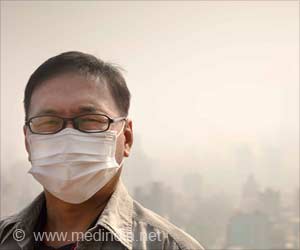Morning walks are an important part of many people’s exercise regimens. They help you start your day on a good note and provide numerous physical and mental health benefits. However, the Air Quality Index (AQI) has reached dangerous or severe levels in several Indian cities, including New Delhi, Faridabad, Ghaziabad, Hisar, Gurgaon, and Noida (1). According to data from the Central Pollution Control Board (CPCB), some localities in Delhi, including Anand Vihar station, Punjabi Bagh station, and Mundka station, have registered AQI values in the “severe” category, exceeding the 400 AQI mark. Going for a morning walk in such dirty air can be more detrimental than useful.
Health Hazards of Air Pollution
Pollutants in the air settle and become concentrated in the morning when temperatures are low. Going for a walk in such a setting can result in inhaling a hazardous mixture of contaminated air (2). This can cause coughing and shortness of breath, as well as an increased chance of acquiring chronic illnesses such as Chronic Obstructive Pulmonary Disease (COPD), cardiovascular disease, and even lung cancer (3).
Stay Indoors if the Air Quality is Poor
Check the Air Quality Index (AQI) for your location before going for a morning walk. Several apps and websites provide real-time air quality information. The AQI will reveal pollutant levels in the air, such as particulate matter (PM2.5 and PM10), ozone, and nitrogen dioxide. It is not recommended to indulge in any outside activities if the AQI falls to a harmful or dangerous level.
Opt for Indoor Workouts
While you may be committed to your daily workout, it is critical to prioritize your health. Because the air outside is hazardous, consider switching to indoor workouts. There are various walk-at-home videos available that you can watch at home.
Precautions to Take Before You Step Out for a Walk
If you still want to go for a walk outside, consider rearranging your timetable. If the air quality is better, such as in the afternoon when the sun is shining, you can go for a shorter outdoor walk. Avoid intense exertion, and always wear N95 or N99 masks to filter out fine particulate matter and dramatically decrease your exposure to pollution (4).
References:
- Health effects of particulate matter in major Indian cities
Manojkumar N, Srimuruganandam B. Health effects of particulate matter in major Indian cities. Int J Environ Health Res. 2021 Apr;31(3):258-270.
Advertisement
- Poison in the air: Declining air quality in India
Mishra M. Poison in the air: Declining air quality in India. Lung India. 2019 Mar-Apr;36(2):160-161. doi: 10.4103/lungindia.lungindia_17_18. PMID: 30829253; PMCID: PMC6410587. - Environmental and Health Impacts of Air Pollution: A Review. Front Public Health
Manisalidis I, Stavropoulou E, Stavropoulos A, Bezirtzoglou E. Environmental and Health Impacts of Air Pollution: A Review. Front Public Health. 2020 Feb 20;8:14. doi: 10.3389/fpubh.2020.00014. PMID: 32154200; PMCID: PMC7044178. - Filter performance of n99 and n95 facepiece respirators against viruses and ultrafine particles
Eninger RM, Honda T, Adhikari A, Heinonen-Tanski H, Reponen T, Grinshpun SA. Filter performance of n99 and n95 facepiece respirators against viruses and ultrafine particles. Ann Occup Hyg. 2008 Jul;52(5):385-96. doi: 10.1093/annhyg/men019. Epub 2008 May 13. PMID: 18477653; PMCID: PMC6768072.
Source: Medindia



